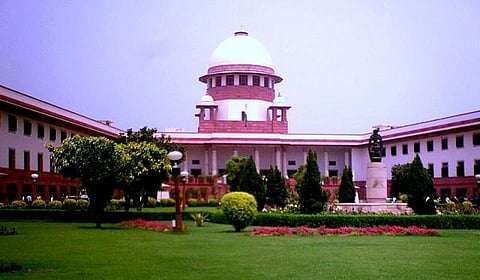

Stating that some provisions in the Muslim Personal Law, like polygamy and arbitrary divorce, are biased against women, the Supreme Court has said that it will examine the issue as it is related to the protection of fundamental rights of Muslim women guaranteed by the Constitution, reported The Times of India.
According to the report, a bench of justices AR Dave and AK Goel said "laws dealing with marriage and succession are not part of religion and the Muslim Personal Law has to evolve with the changing times".
Stating that the issue is not merely about policy but also about the fundamental rights of Muslim women, the bench said that the judiciary must examine the provisions in Muslim Personal law to protect them from gender discrimination.
The bench also citing an earlier judgement by the apex court which had stated "practice of polygamy is injurious to public morals and can be superseded by the State just as practice of ‘sati’".
"It was pointed out that in spite of Constitutional guarantee, Muslim women are subjected to discrimination.There is no safeguard against arbitrary divorce and second marriage by her husband during currency of the first marriage, resulting in denial of dignity and security to her," TOI quoted the bench as saying.
Apart from ordering the issue to be treated as PIL, the bench also asked Chief Justice HL Dattu to constitute a bench to look into the issue, states the report.
The Supreme Court had recently asked the government to explain its stand on the Uniform Civil Code but the Union Law ministry is yet to respond.
"There is total confusion. We should work on the Uniform Civil Code. What happened to it? If you (government) want to do it then you should do it. Why don’t you frame and implement it," Deccan Herald quoted the bench as saying.
According to Huffington Post, a two-judge bench in its October 16 ruling had observed that, "An important issue of gender discrimination which though not directly involved in this appeal, has been raised by some of the learned counsel for the parties which concerns the rights to Muslim women. Discussions on gender discrimination led to this issue also. It was pointed out that inspite of guarantee of the Constitution, Muslim women are subjected to discrimination. There is no safeguard against arbitrary divorce and second marriage by her husband during currency of the first marriage, resulting in denial of dignity and security to her."